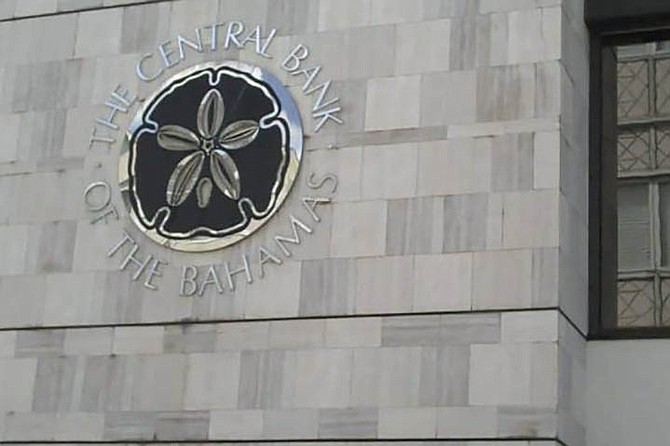By NEIL HARTNELL
Tribune Business Editor
nhartnell@tribunemedia.net
The number of Bahamian internet banking users increased by almost 31 percent to breach the 100,000 mark in 2020 as COVID-19 increasingly drove persons to digital transactions.
The Central Bank, in its just-released 2020 annual report, said the increasing use of mobile and internet banking had driven it to regularly monitor the level of payment fraud “as part of a heightened focus on consumer protection”.
“Commercial banks continued to deliver various Internet-banking services to customers,” the regulator added. “The number of Internet banking users rose by 30.9 percent to 103,379 accounts. Given the rise in technology to execute various payments transactions, instances of fraud have the potential to emerge....”
The Central Bank said its 2020 payments survey had uncovered some 3,317 fraudulent transactions, worth a collective $5.2m, involving credit and debit cards as well as cheques. While debit cards accounted for the majority, or more than two-thirds, of cases, cheques formed the bulk of the value involved.
“Disaggregated by type, cases involving debit cards accounted for 68.6 percent of the total at 2,276, with an associated value of $0.9m (17.9 percent of the total value),” the Central Bank said. “Credit card fraud represented 29.8 percent of the total cases for a corresponding value of $1m (19.9 percent of the total value).
“As the usage continue to diminish, the cheque fraud cases represented a marginal 1.6 percent of all reported instances, but the associated value was almost two-thirds of the corresponding total ($3.2m). The survey revealed that 95.9 percent of fraudulent cases were reported in New Providence, where the majority of bank customers also reside.”
Amid the high unemployment, income cuts and COVID-19 lockdowns, the Central Bank said Bahamian credit card holders repaid a net $100m during 2020. “On net, credit card balances were repaid in 2020. New credit, an indicator of gross spending, rose by 7.3 percent to $1.6bn but total repayments increased by 10.8 percent to $1.7bn.
“The number of cards issued or renewed by commercial banks declined further by 2.7 percent to 90,093, following a 3.4 percent reduction the previous year, while the corresponding balances owed fell by 10.1 percent to $245.4m.”
As for debit cards, the regulator added: “During 2020, the number of such transactions reduced by 17.1 percent to 12.4m, while the associated value was lower by 7.7 percent at $1.8bn.... The value of transactions through ATMs declined by 2.9 percent to $2bn, and the corresponding volume fell by 28 percent to eight billion.”
Elsewhere, the Central Bank said nearly 27m one-cent coins were handed in during the 2020 fourth quarter ahead of the year-end deadline to cease its use as legal tender in payment transactions.
“During October to December 2020, an estimated 26.6m coins were collected, the majority from the redemption by weight exercise (22.1m) and the remainder through deposits at commercial banks (4.5m),” the regulator added.
As for the Sand Dollar, the Central Bank digital currency, some $130,000 worth were in circulation by 2020 year-end. “During the year, the bank issued limited amounts of Sand Dollars to the authorised financial institutions (AFIs) and closed the year with a total value of $130,000 in circulation,” it added.
“With pilot activities constrained by the pandemic, resources were concentrated on further testing and development of the technology platform. Issuance is expected to expand in 2021, as AFIs complete the integration of their mobile wallet platforms with the Sand Dollar platform....
“The bank deepened its collaboration and preparation for the Government to use the Sand Dollar as its method for collections and disbursement of payments, especially in Family Island cash districts, where commercial banking services were absent or on a decline.”





Comments
JokeyJack 4 years, 9 months ago
Covid didnt drive people online; stupid rules did.
whatsup 4 years, 9 months ago
We had no choice. Who wants to stand outside in the heat and then once inside, bad service.
Sign in to comment
OpenID